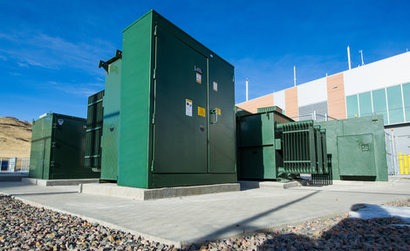
The WEC report “E-storage – shifting from cost to value” says that a narrow focus on cost alone may be leading to misconceptions about the real value of energy storage. The report focuses on solar and wind applications and further states that the focus only on investment costs is leading to the perception that energy storage is more expensive than it actually is because it ignores the system value of stored energy.
The report is therefore calling for the true value of energy storage to be recognised, looking at a number of storage costings across the technology spectrum and concluding that the widely used levelised cost of energy (LCOE) methodology is hindering its progress. The analysis identifies “double trouble” problems with the methodology, namely arbitrariness which does not allow for differences in application cases, and incompleteness as only limited account of revenue is taken.
“Energy storage is a critical catalyst of the energy transition whose benefits are still undervalued” said Christoph Frei, Secretary General of the World Energy Council. “The costs have already come down, but will have to fall further for a much broader roll-out and use in household and E-mobility. The investment community has good reason to be excited about the innovation and business models that will emerge from new opportunities.”
Mr Frei added that there is a bright future for energy storage with significant innovation potential. With the cost of capturing and storing wind and solar energy coming down, its deployment across the world will increase. The market is right to be enthusiastic about storage, not just because of the cost reductions that it brings, but also because of additional revenue and other benefits that specific technologies in specific contexts can deliver.
The report also estimates that with many new technologies in the pipeline, storage costs of energy will fall by as much as 70 percent over the next 15 years. Solar storage will become more competitive as new battery technology drives prices down, and wind storage more attractive as technical advances in areas such as composite materials enables the power generated by wind turbines to increase.
While batteries are currently too expensive for large-scale use, improving technology is cutting costs, which means storage systems could replace some plants and avoid the need for new ones, as well as reducing demand for oil.
The report makes a number of recommendations to policymakers in order to create the right policy environment that will unlock the potential of energy storage and capitalise on its true cost and value benefits. It urges policymakers to look beyond costs in that cheapest is not always the best. Policymakers should also examine storage through holistic case studies, work with operators and regulators to accelerate the development of flexible markets, establish supporting policies and an enabling regulatory framework to facilitate further commercial deployment of storage technologies and consider storage as a key component for grid expansion or extension.
The report warns that the value of stored energy needs to be assessed on a case by case basis because revenue streams will vary over time and between countries as they are dependent on the market, policy regime and variability of competing resources.
“Too often the industry only talks about one half of the profit formula, namely cost” Christoph Frei continued. “Policymakers should recognise the wide span of market places that can benefit from energy storage. These range from bringing down the cost of home solar systems, enabling the electric car industry to grow, helping electricity suppliers to manage problems when the grid goes down or there is grid overload to taking advantage of market price fluctuations and selling electricity across borders. To take full advantage of the growing wind and solar electricity shares, policymakers must review electricity market design so as to incentivise the build-up of storage capacity and ensure reliable and affordable electricity supply.”
The report was produced by 23 leading industry and academic experts from across the world who are also members of the World Energy Council Storage Knowledge Network. The lead author is DNV GL with PwC making a significant contribution towards the cost analysis.
The Storage Knowledge Network is one of 15 Knowledge Networks in the World Energy Council who will all be preparing reports for the World Energy Resources flagship study which will be presented at the 23rd World Energy Congress in Istanbul, Turkey in October 2016.
For additional information:

